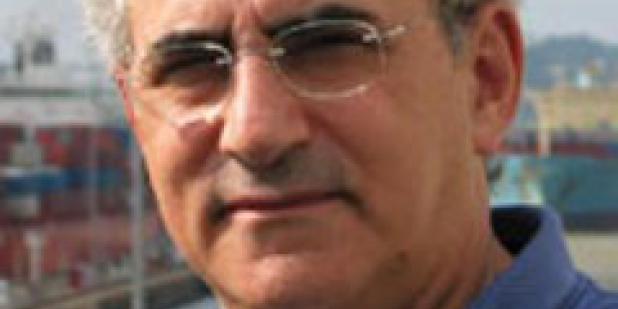Join us for a free one-day workshop for educators at the Japanese American National Museum, hosted by the USC U.S.-China Institute and the National Consortium for Teaching about Asia. This workshop will include a guided tour of the beloved exhibition Common Ground: The Heart of Community, slated to close permanently in January 2025. Following the tour, learn strategies for engaging students in the primary source artifacts, images, and documents found in JANM’s vast collection and discover classroom-ready resources to support teaching and learning about the Japanese American experience.
Bringing the Party Back in: the Role of Organization Department in China’s Reverse Migration
The USC U.S.-China Institute presents a talk with David Zweig on the Chinese government's efforts to "reverse the brain drain" to bring back expatriate talent.
Where

Click here to watch a video of the presentation.
For many years, China's government organizations led the effort to bring about a "reverse brain drain." However, while 400,000 students have returned, the top 20% of its expatriate talent has remained abroad. To resolve this problem, in 2002-2003, the Organization Department of the CCP expanded its portfolio from "managing cadres" to managing "talent.” Yet, these early efforts did not “bring back the best.” However, since 2008, largely under the leadership of Li Yuanchao, director of the Organization Department, and through a new "1000 Talents Plan", the CCP has become far more active in mobilizing central ministries, local governments, and overseas efforts to bring back China's best. While these efforts have met with some success, the program has met with some difficulties leading most of the very talented to opt for short-term stays rather than make a full commitment to moving back to China.
David Zweig, a member of the USCI board of scholars, is also Chair Professor of the Division of Social Science as well as the Director of the Center on Environment, Energy and Resource Policy and Associate Dean, School of Humanities and Social Sciences. He is an Adjunct Professor, School of Social Sciences and Humanities, National University of Defense Technology, Changsha, Hunan, and the former president of the Hong Kong Political Science Association. In 1984-85, he was a Postdoctoral Fellow at Harvard University. His Ph.D. is from The University of Michigan (Political Science, 1983). He is the author of four books, including Internationalizing China: domestic interests and global linkages (Cornell Univ. Press, 2002), which will be out in a Chinese edition from Renmin University Press in April 2012. He has also edited five books in both English and Chinese and several special issues of academic journals. He is currently editing a book on US-China energy competition in third countries and writing books on Mainlanders who studied overseas and returned to China and on Hongkongers who lived in the Mainland.
Driving Directions to Campus
For maps and directions to campus, visit the University Park Campus Map & Driving Directions page.
Suggested Parking
Parking Structure D (PSD)
Enter at the Jefferson Boulevard Entrance at Royal Street (Entrance 4).
Parking Structure X (PSX)
Enter at the Figueroa Street Entrance at 35th Street (Entrance 3)
Parking on campus is $10.

Featured Articles
Please join us for the Grad Mixer! Hosted by USC Annenberg Office of International Affairs, Enjoy food, drink and conversation with fellow students across USC Annenberg. Graduate students from any field are welcome to join, so it is a great opportunity to meet fellow students with IR/foreign policy-related research topics and interests.
RSVP link: https://forms.gle/1zer188RE9dCS6Ho6
Events
Hosted by USC Annenberg Office of International Affairs, enjoy food, drink and conversation with fellow international students.
Join us for an in-person conversation on Thursday, November 7th at 4pm with author David M. Lampton as he discusses his new book, Living U.S.-China Relations: From Cold War to Cold War. The book examines the history of U.S.-China relations across eight U.S. presidential administrations.




